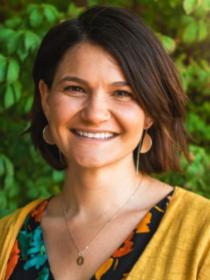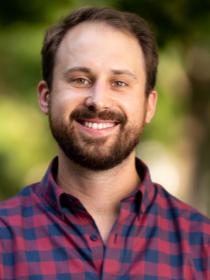Chapter Spotlight: For Utah SSN, a Deep and Fast-Paced Dive into Policy
“We had an idea of some of the bills that were going to come up. We wanted to figure out how to get people prepared to engage in a way that might be meaningful during the 45 days of the session.” – Jessica Sanders, Utah SSN chapter leader
As a smaller chapter, Utah SSN has long been focused on creating opportunities for deep engagement among their members. Their latest effort along these lines is a policy cohort, organized by Utah SSN chapter leaders Jessica Sanders and James Curry, that has become a tight-knit community of scholars intent on connecting their research to state policy – and helping each other along the way.

This past fall, as Sanders and Curry mapped out their plans for 2023, they decided that number one on their list of priorities was connecting with their current members. And not only did they find opportunity around the corner – they found urgency: the Utah State Legislature’s fast-paced 45-day session. “We had an idea of some of the bills that were going to come up,“ Sanders said. “We wanted to figure out how to get people prepared to engage in a way that might be meaningful during the 45 days of the session.”
After sending out an invitation to join the cohort, twelve people responded expressing strong interest, which included both SSN members and non-SSN healthcare providers. “It wasn't huge. And in some ways that was a good thing, right? Because we wanted to have more conversations, sit in smaller groups,” said Sanders.

Members of the cohort have a range of expertise, such as reproductive rights, Medicaid, gender and sexuality, housing, and democracy. Sanders expressed the value that the cross-disciplinary collaboration has brought to the group. “We’ve been able to talk about bills in more intersectional ways, together, “ she said. Sanders explained that this was especially due to all the cohort members’ shared interest in reproductive health policy, despite their different issue areas.
“It’s been, let's look at the postpartum Medicaid expansion. Let's look at the family planning waiver. Let's look at the abortion legislation – and talk about the different ways that this impacts economics, or education, and create briefs and messaging pieces that really speak to these broader issues.”
And one particular way they would like to get their messages across: OpEds. Which is precisely why Sanders and Curry invited The Salt Lake Tribune opinion editor George Pile to attend one of their sessions and offer hands-on OpEd advice. “It kind of gave everyone a peek behind the curtain,” Sanders said. “It made getting an OpEd placed feel more accessible, which I think is such a huge thing.” One member of the cohort was able to publish an OpEd on affordable housing in the Tribune just two weeks after the workshop.
Other sessions have focused more specifically on policy matters, such as an introduction to ways scholars can make themselves a resource to legislators ahead of time. One session focused on open bills and explained to members how to read a bill file. And for their latest meeting, cohort members went to the state capitol to attend a Health and Human Services Committee hearing together and see for themselves the role that expert testimony can play. In fact, they got to see Sanders herself give a public testimony on a postpartum Medicaid coverage bill, which passed out of the committee favorably.
With the legislative session ending March 3rd, cohort members – now well equipped with information, tools, and each other’s support – look forward to engaging with legislators in between sessions, which they hope will place them in a good position for the next session.
Learn more about the Utah chapter here.
